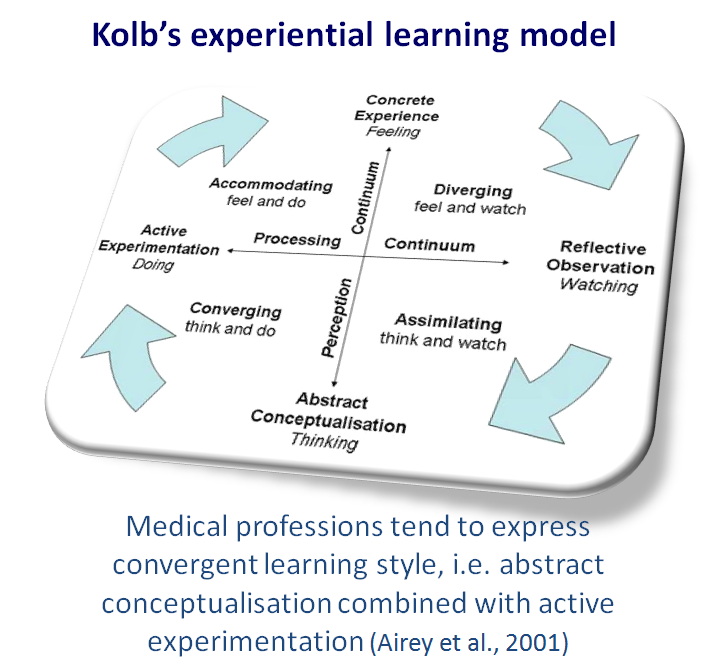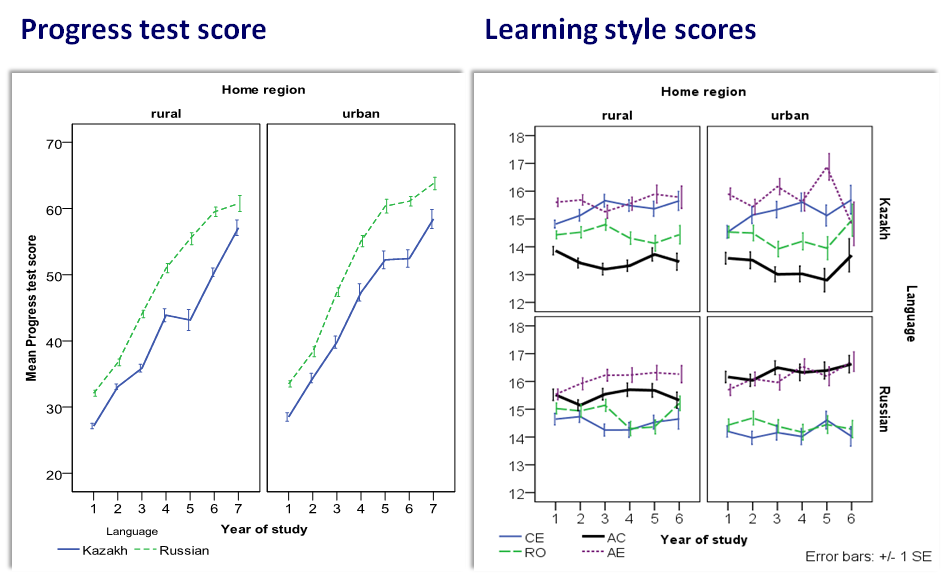
| Theme: Assessment: Written and Feedback | |||
 |
||||||
| Does it really matter which language you are educated in? Spillover conclusions of research on efficiency of medical educational programme |
 |
|||||
|
||||||
Influence of lingual differences on the success of medical education is still debated. When our University started researching efficiency of its programme in January 2012, we did not intend to focus on lingual differences. However, language of instruction (Russian or Kazakh) was included as covariate and unexpected results came out.

In search for factors influencing success of medical education, 2846 students of Karaganda State Medical University took progress test and were surveyed using Kolb’s Learning Style Inventory (KLSI). KLSI was used to classify learners into “convergers”, “divergers”, “accommodators”, “assimilators” and assess preference to reflective observation, abstract conceptualisation (AC), active experimentation, and concrete experience.
Progress test served as the main indicator of academic performance. For each respondent, gender, GPA, language of instruction, home region (rural or urban) were also recorded.
We observed higher progress test scores, AC scores and ratio of convergent learning style in students instructed in Russian and coming from urban areas. Multiple regression revealed AC score contribution to better academic performance, and multivariate ANOVA confirmed language of instruction as the most prominent factor for both academic performance and abstract conceptualisation.

In our opinion, the limited availability of clinical and basic science sources in Kazakh (in comparison to Russian) inhibits students’ desire to logically process and interpret information, reduces knowledge apprehension and decreases academic performance. The students instructed in Kazakh could not develop deep learning strategies which were shown to be effective only in combination with effective resource management (Stegers-Jager, Cohen-Schotanus, and Themmen, 2012).
At this, the ethnicity (Russian or Kazakh) did not play a role, only the language of instruction: the Kazakhs studying in Russian had both better abstract conceptualisation and progress test scores than Kazakhs studying in Kazakh.
It is best for the countries with a less influential national language to not limit student’s medical education to a single language, but stimulate them to learn and communicate in more prominent languages.
This research project was part of Master Thesis in Health Professions Education defended in Maastricht University. The authors appreciate the help provided by MHPE staff in Maastricht University and personally the supervisor Arno Muijtjens.

 Send Email
Send Email